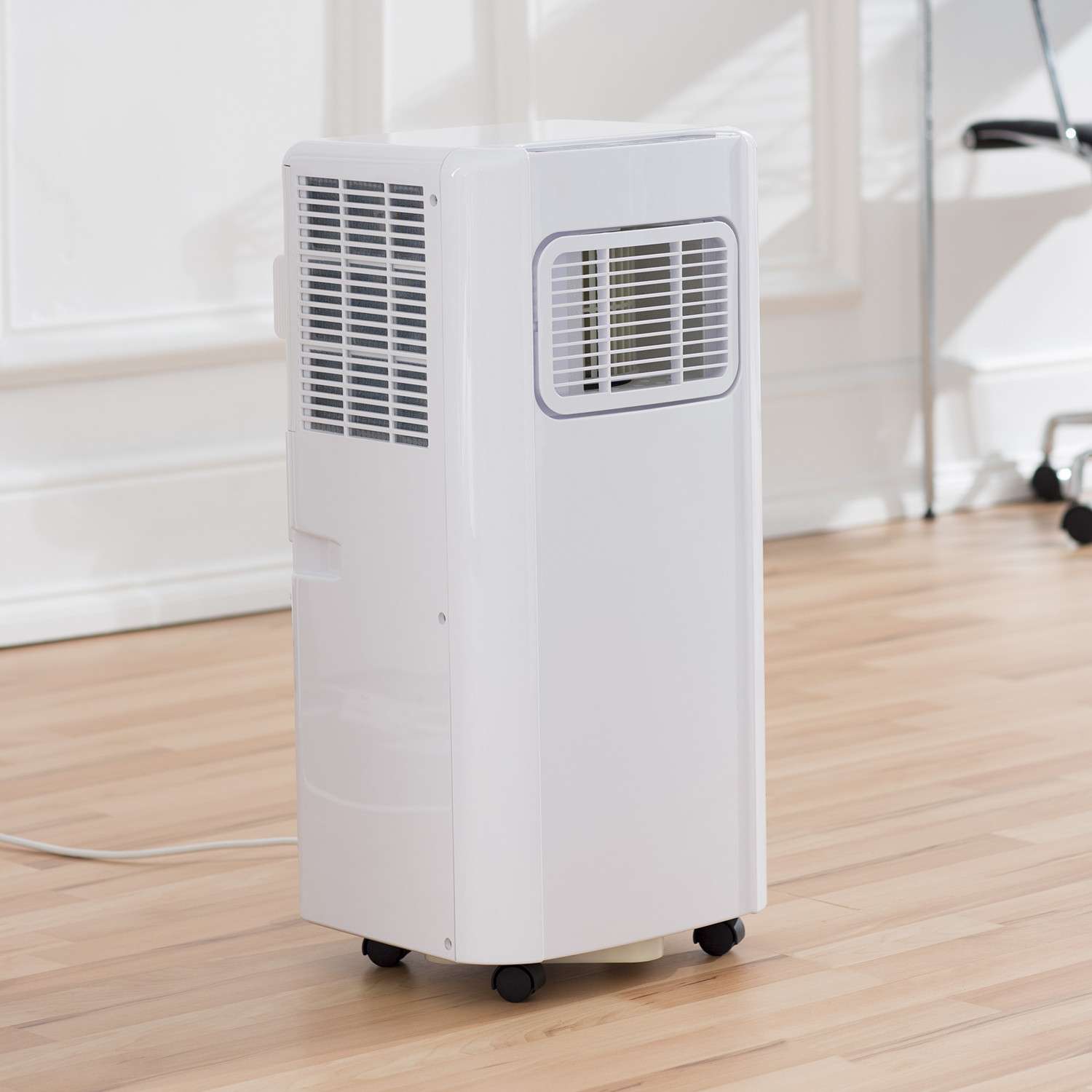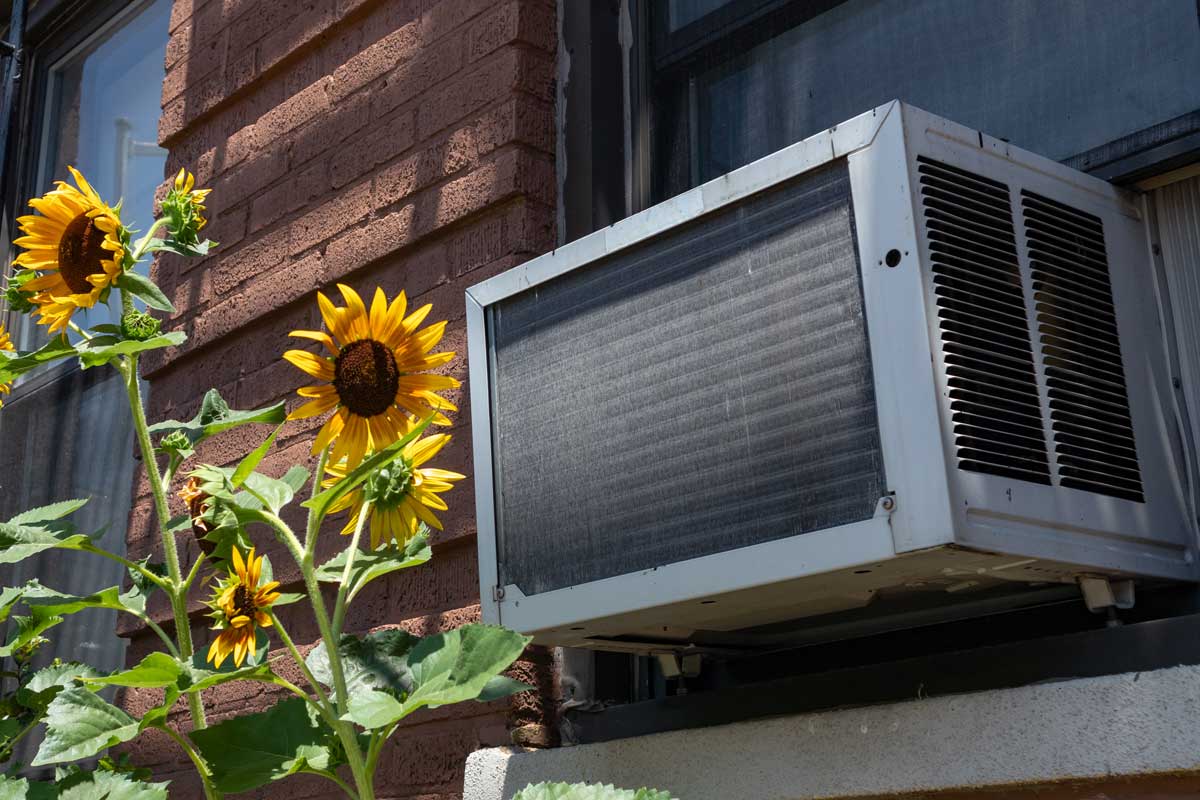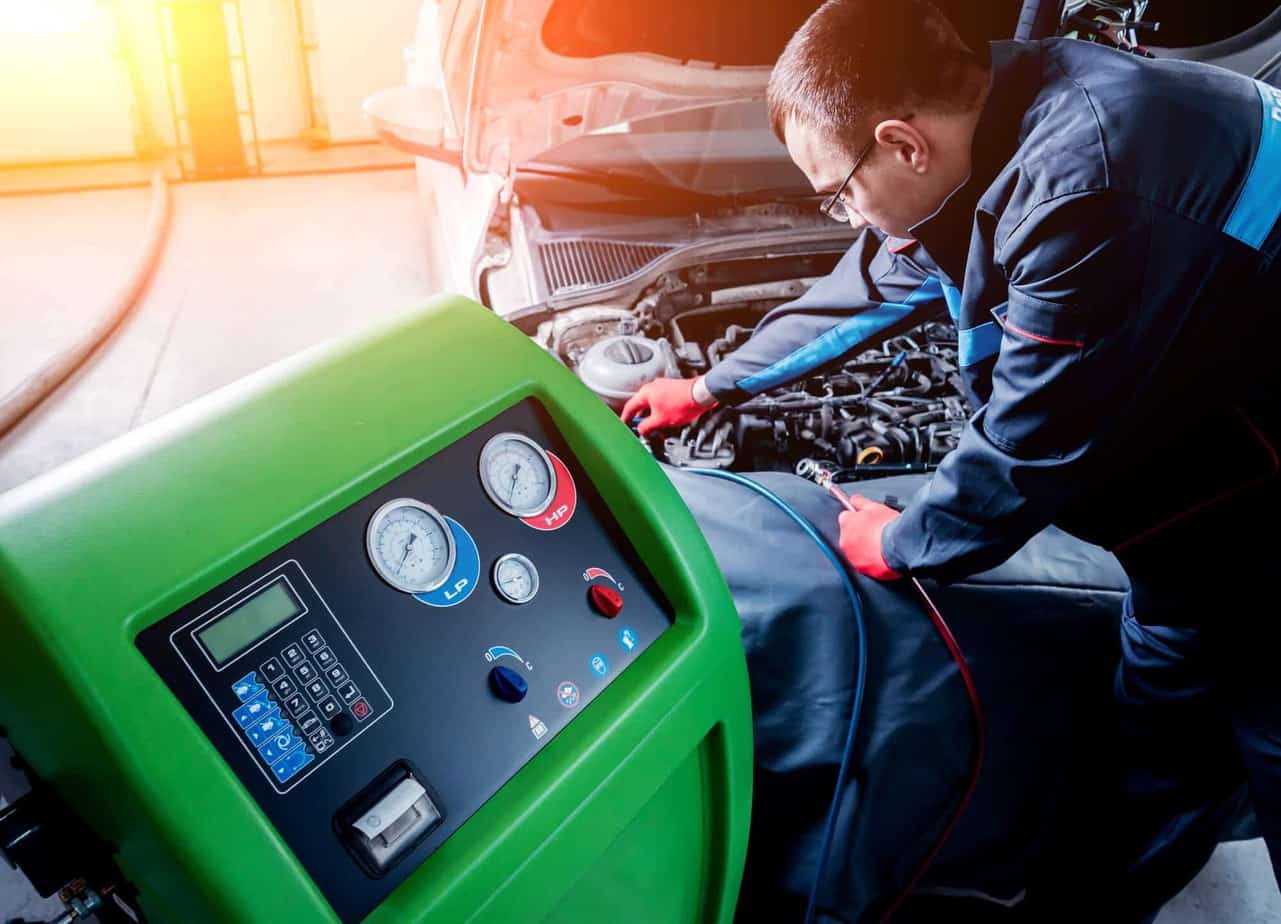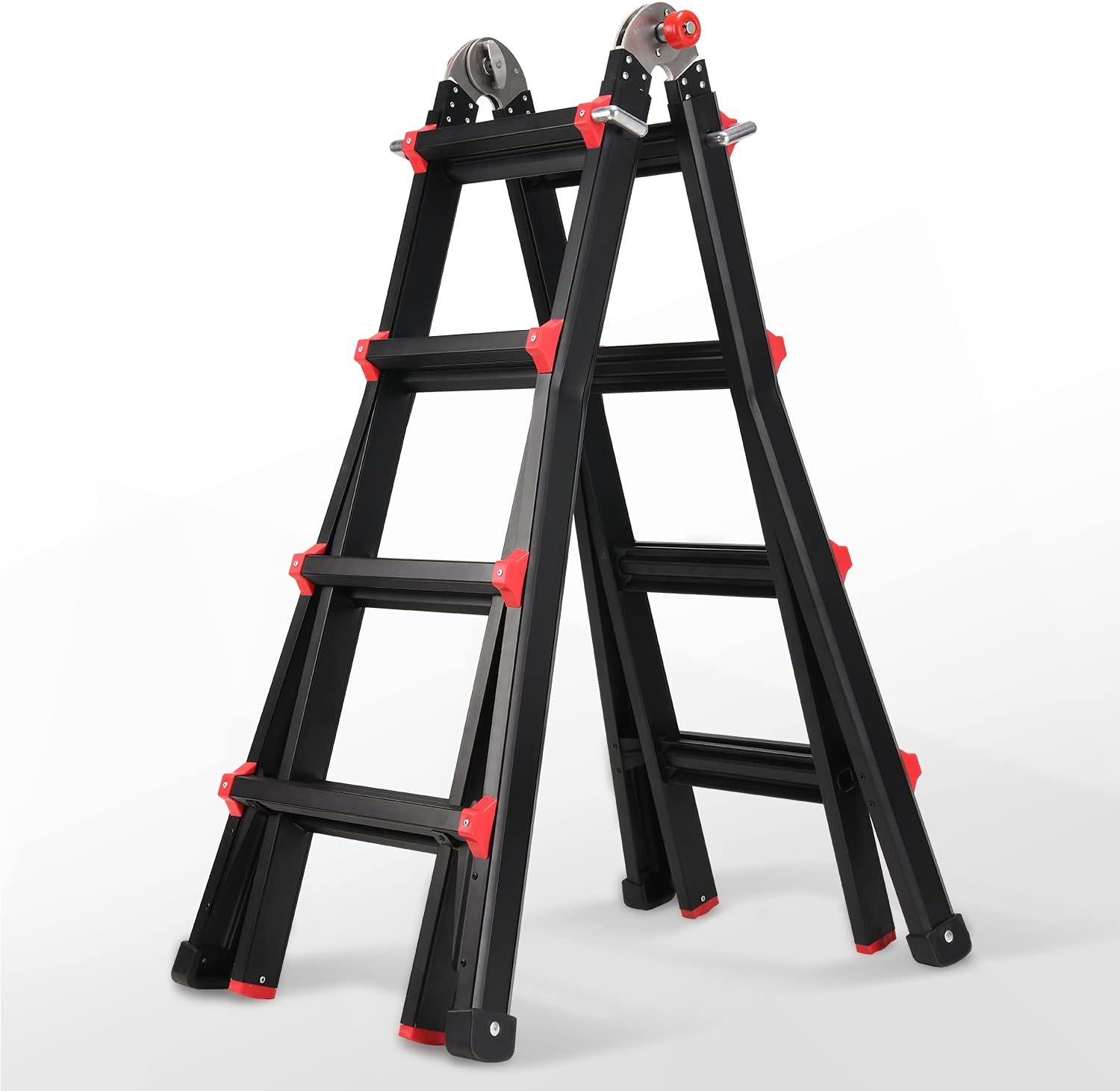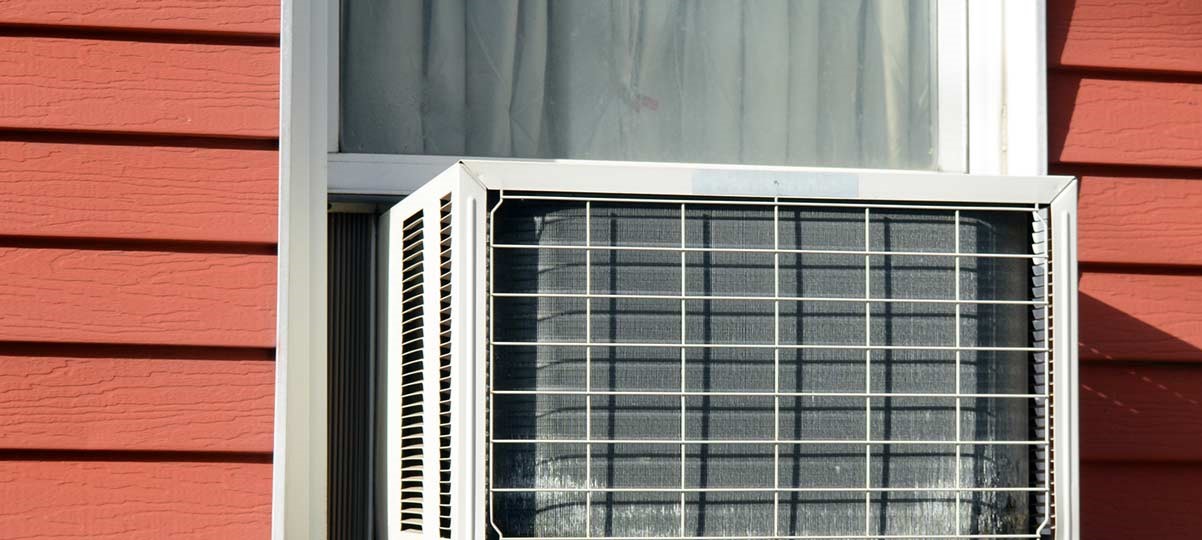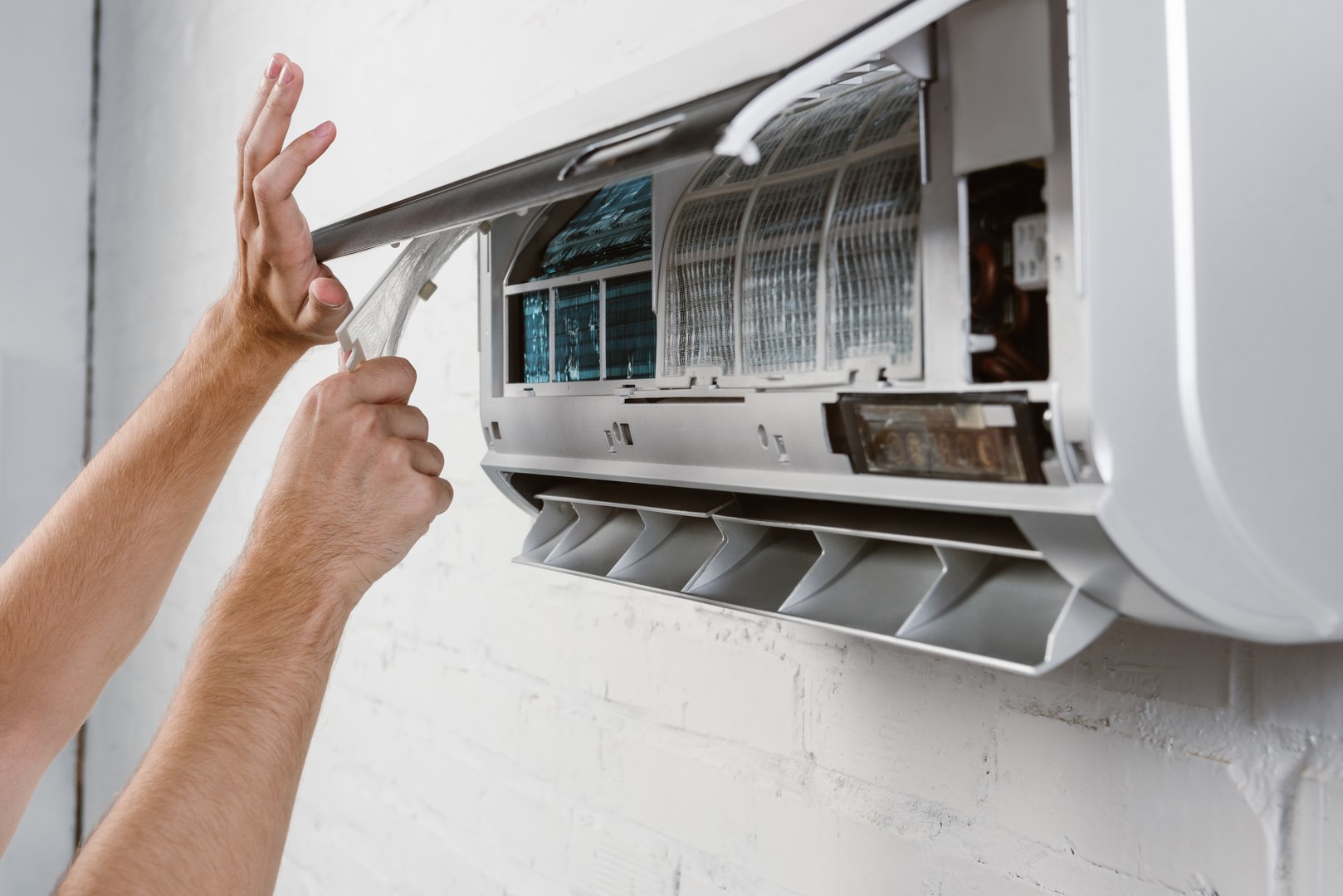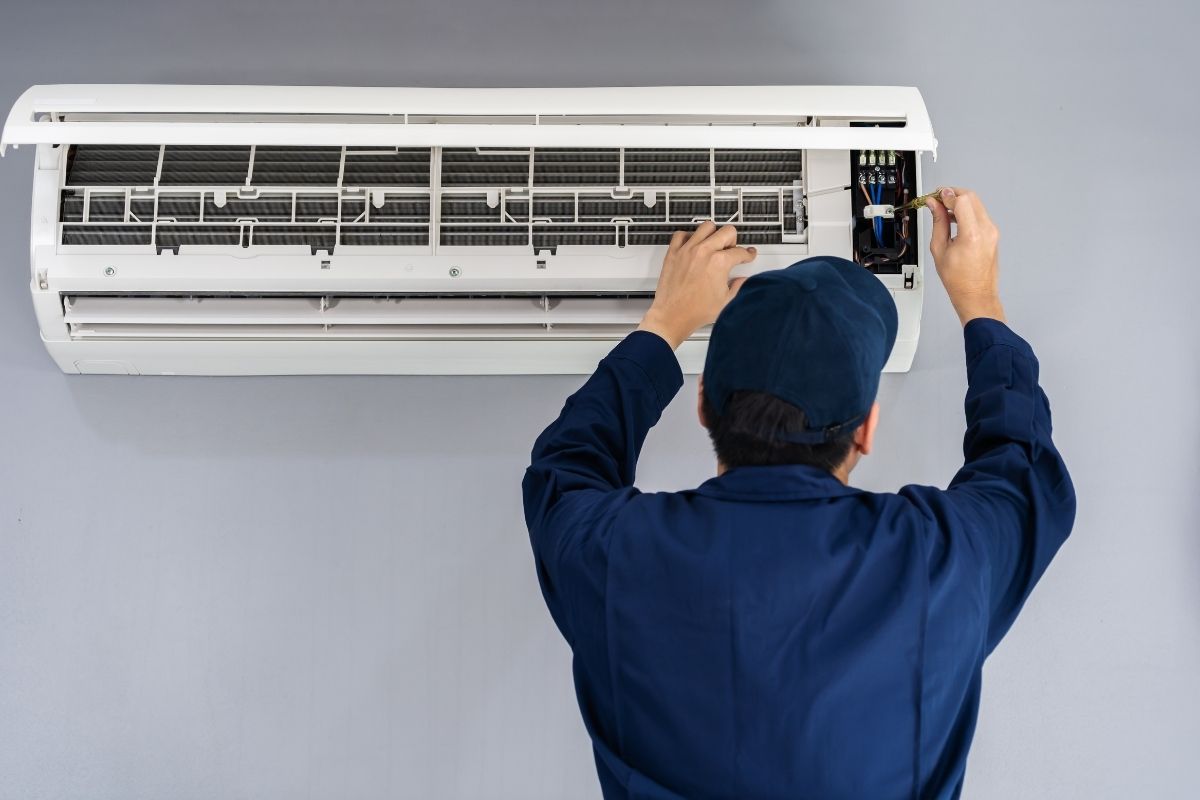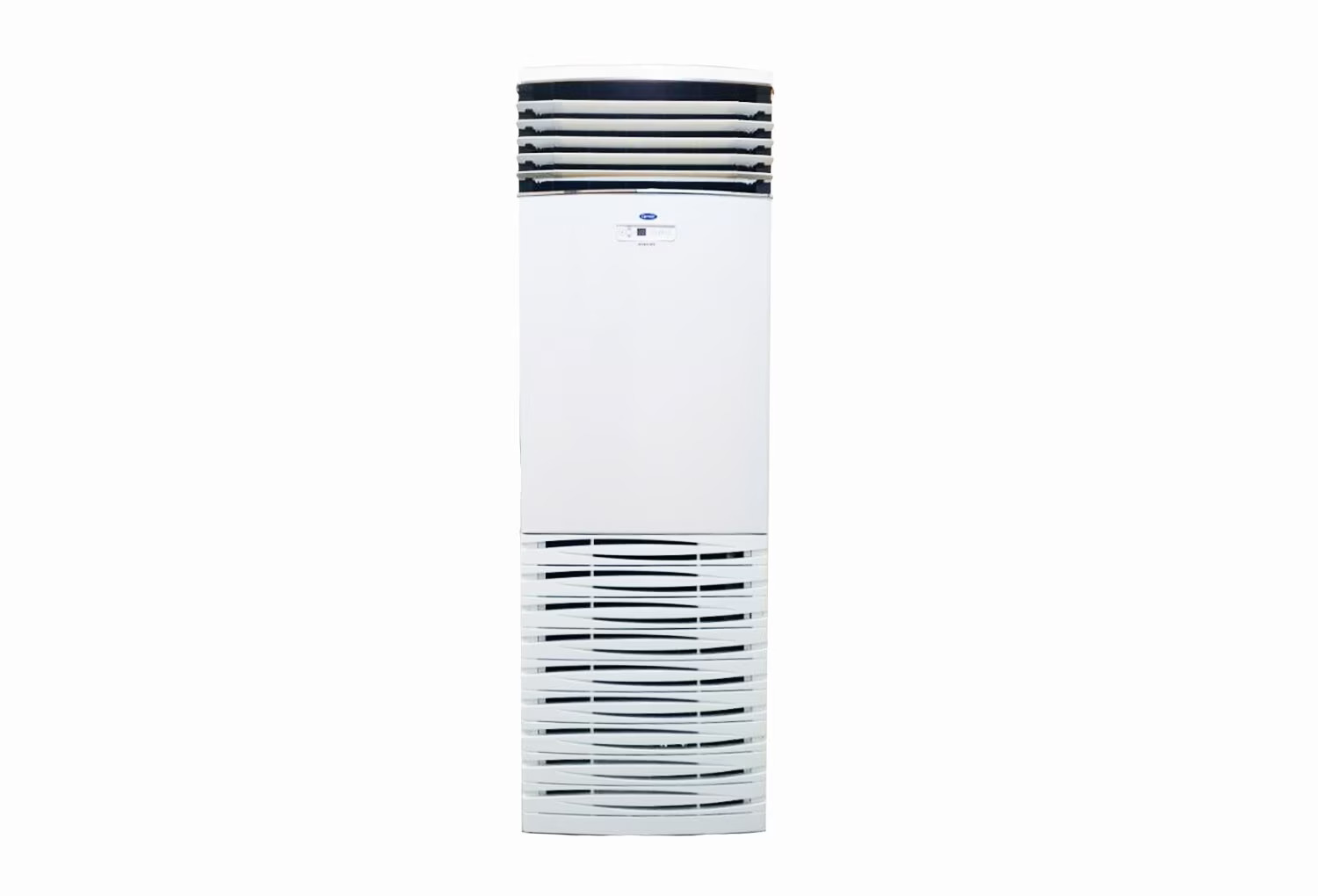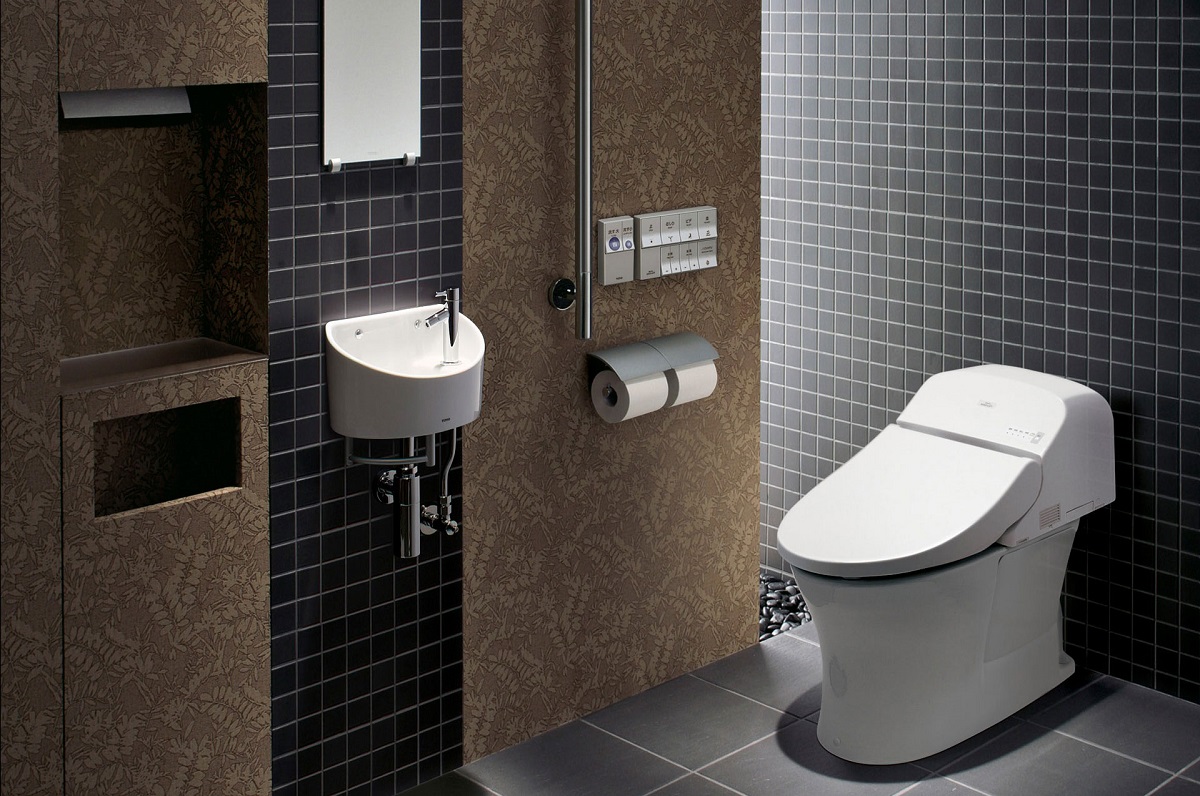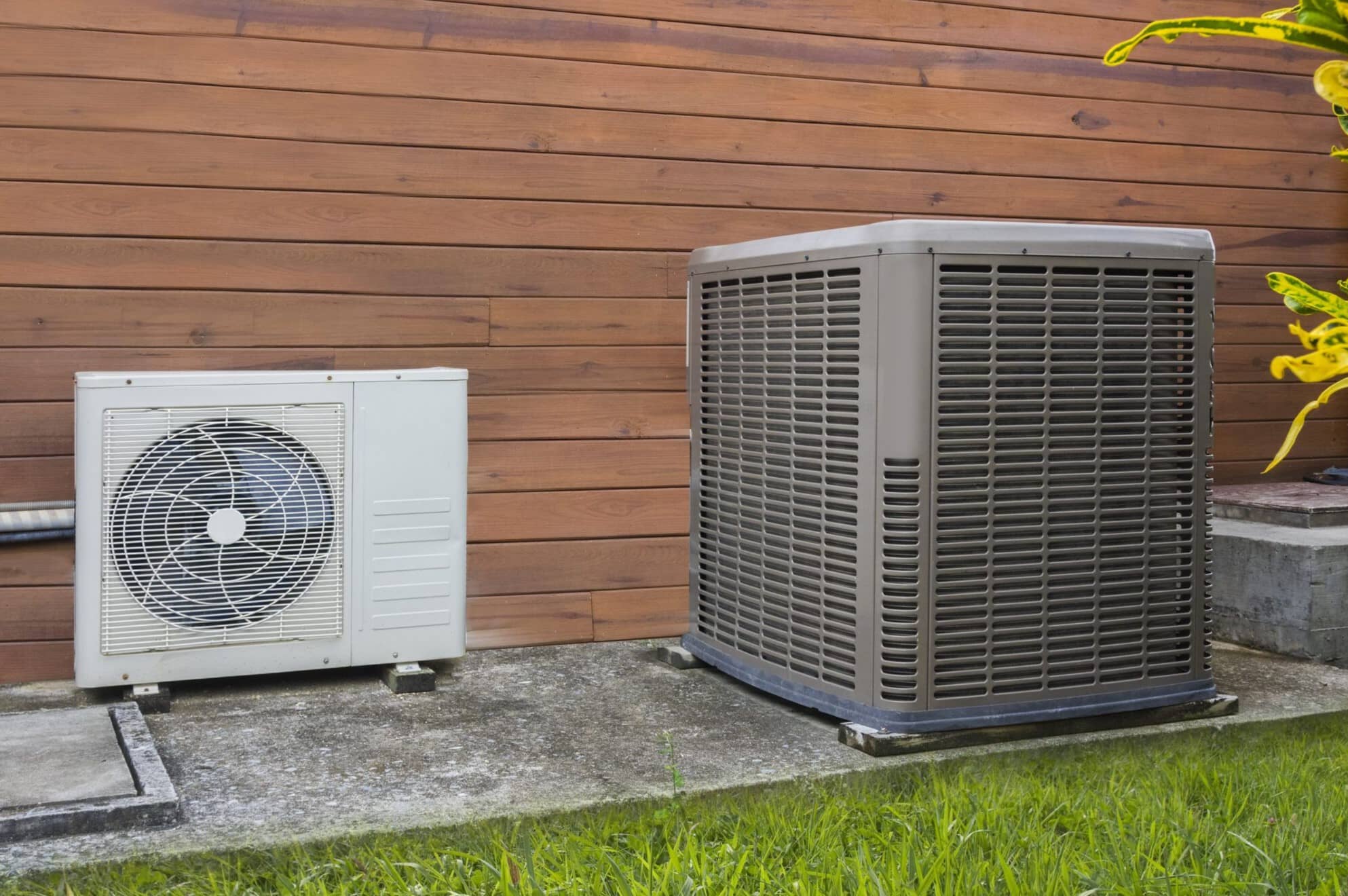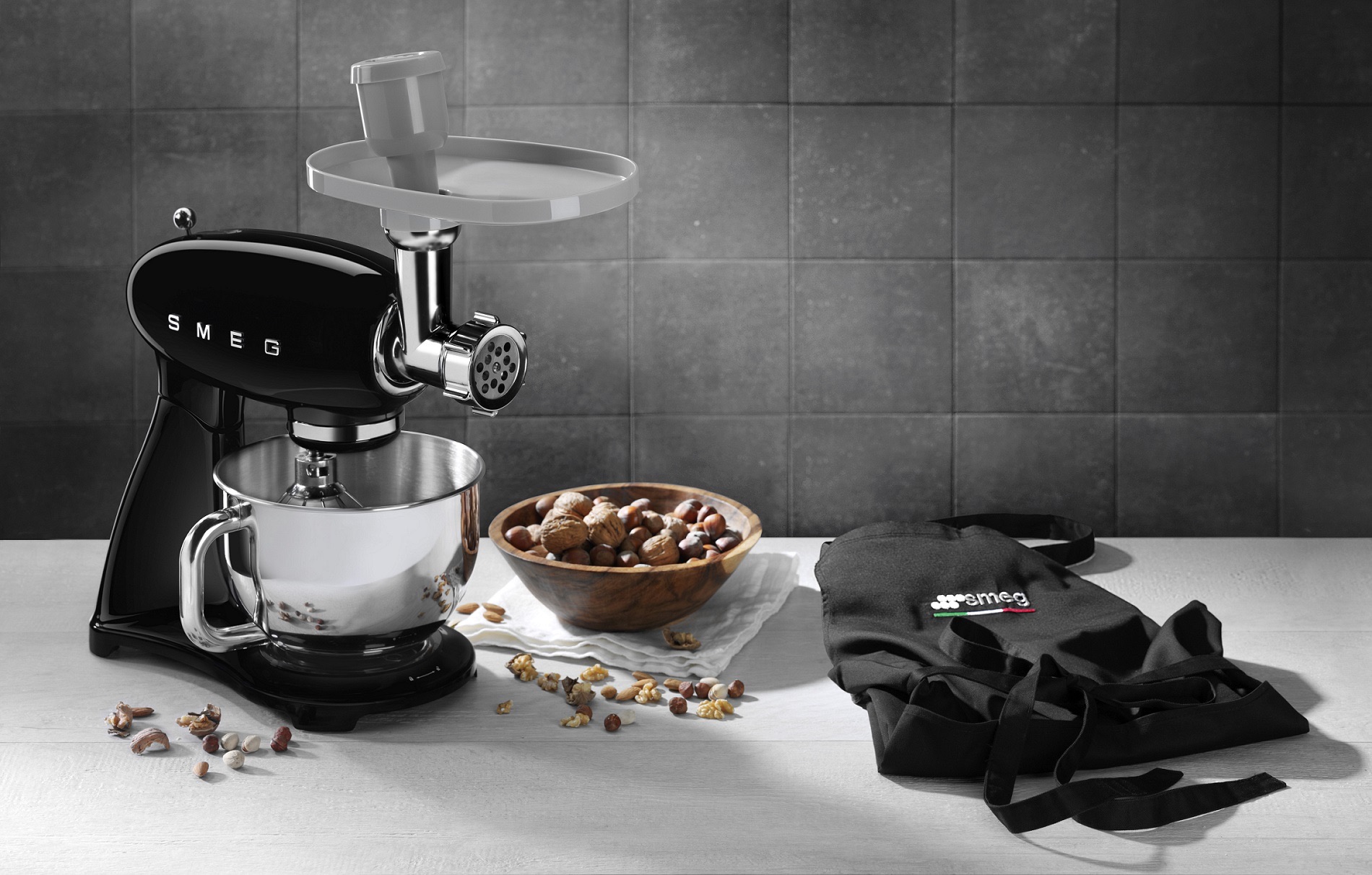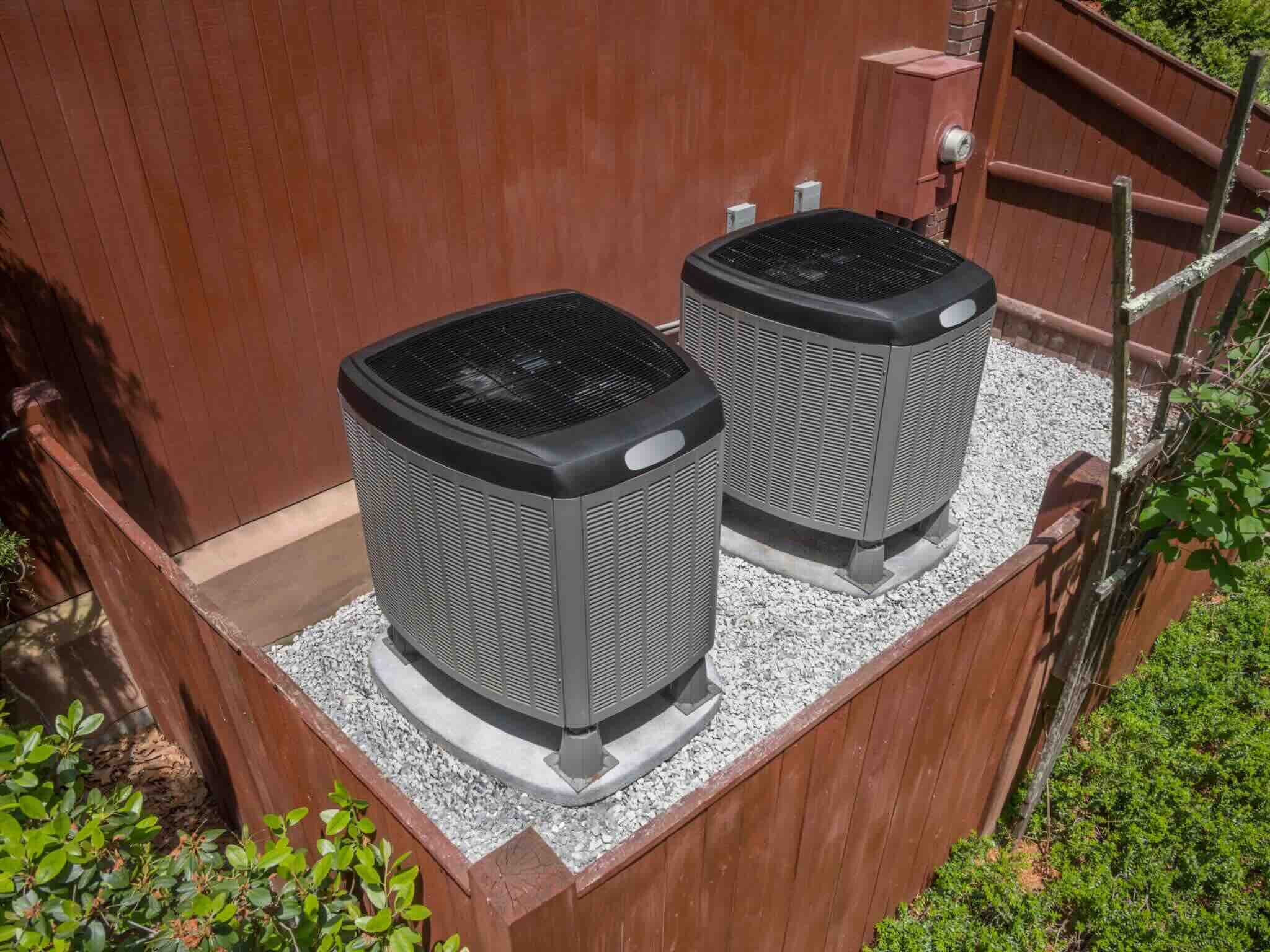Home>Home Maintenance>How Much Does An Air Conditioner Cost?
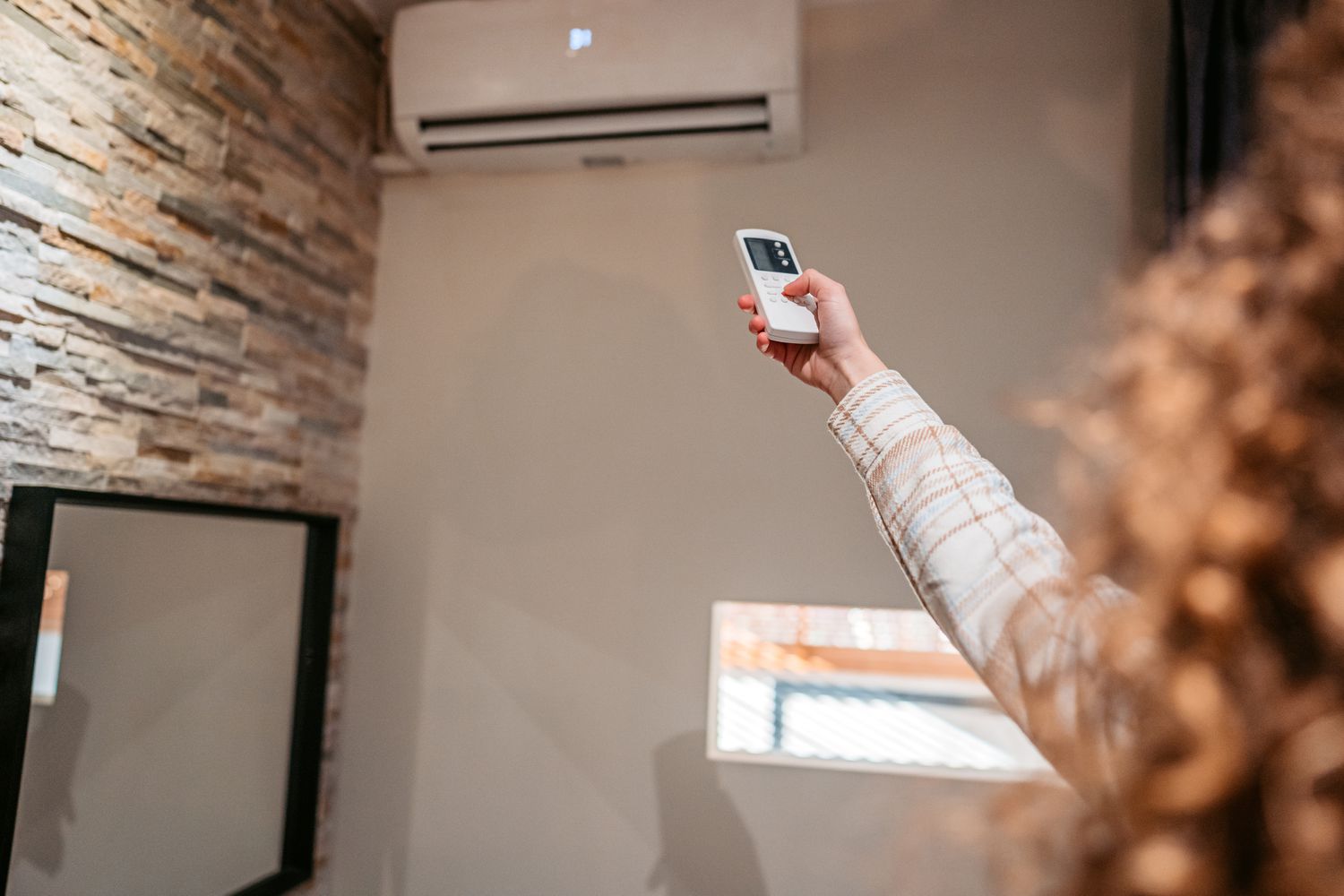

Home Maintenance
How Much Does An Air Conditioner Cost?
Modified: August 28, 2024
Looking to install or replace an air conditioner? Find out the average cost of air conditioning units and installation for your home maintenance needs.
(Many of the links in this article redirect to a specific reviewed product. Your purchase of these products through affiliate links helps to generate commission for Storables.com, at no extra cost. Learn more)
Introduction
When the heat of summer hits, having a reliable air conditioner can make all the difference in maintaining a comfortable and cool home environment. However, before you rush out to purchase an air conditioner, it’s essential to understand the factors that can affect its cost.
From the type of air conditioner you choose to the installation and maintenance expenses, there are several considerations to keep in mind. By understanding these factors and being informed about the different types of air conditioning systems available, you can make a more informed decision about your purchase.
In this article, we will explore the various factors that can impact the cost of an air conditioner, as well as the different types of air conditioning systems available in the market. By the end, you’ll have a comprehensive understanding of what to take into account when purchasing an air conditioner.
Key Takeaways:
- Choose the right air conditioner by considering factors like type, cost, and energy efficiency. Consulting with professionals can help you make an informed decision for a cool and comfortable home.
- Regular maintenance and energy-efficient choices can reduce operational costs and ensure long-term savings. Consider factors like installation, repair, and energy efficiency ratings when selecting an air conditioner.
Factors Affecting the Cost of Air Conditioners
The cost of an air conditioner can vary significantly depending on several factors. Understanding these factors can help you make an informed decision and ensure that you get the best value for your money. Here are the key factors that affect the cost of air conditioners:
- Type of Air Conditioner: The type of air conditioner you choose will have a significant impact on its cost. There are several types available, including central air conditioning systems, window units, ductless mini-split systems, and portable air conditioners. Each type has its own features and price range.
- Size and Capacity: The size and capacity of the air conditioner also play a role in determining its cost. Larger units with higher cooling capacities tend to be more expensive than smaller units. It’s important to choose an air conditioner that is appropriately sized for the area you want to cool to ensure optimal efficiency.
- Brand and Quality: The brand and quality of the air conditioner can have a significant impact on its cost. Well-known brands with a reputation for reliability and performance typically come with a higher price tag. While it may be tempting to go for a cheaper option, investing in a reputable brand can provide better long-term value.
- Energy Efficiency: Energy-efficient air conditioners are designed to consume less energy, resulting in reduced utility bills. However, these units often come at a higher initial cost. It’s important to consider the long-term energy savings when weighing the upfront expense.
- Additional Features: Air conditioners with additional features such as smart thermostats, air purifiers, and programmable settings tend to be more expensive. While these features can enhance comfort and convenience, they may not be essential for everyone and can add to the overall cost.
- Installation Considerations: The installation process for an air conditioner can impact its overall cost. For central air conditioning systems, installation typically involves ductwork and professional labor, which can add to the total expenses. Window units and portable air conditioners, on the other hand, may have simpler installation requirements.
It’s important to keep these factors in mind when budgeting for an air conditioner. By considering your specific needs, energy efficiency goals, and budget, you can make an informed decision and choose an air conditioner that meets your requirements without breaking the bank.
Types of Air Conditioners
When it comes to air conditioners, there are several types available, each designed for specific cooling needs and installation requirements. Understanding the different types can help you choose the right one for your home. Let’s take a closer look at the most common types of air conditioners:
- Central Air Conditioning Systems: Central air conditioning systems are the most common type of cooling system for whole-house cooling. These systems consist of a central unit that cools the air and distributes it through a network of ducts. Central air conditioners are typically the most expensive option but provide efficient and consistent cooling throughout the entire home.
- Window Units: As the name suggests, window units are designed to fit into a window opening. These standalone air conditioners are relatively affordable and ideal for cooling individual rooms or small spaces. Window units are easy to install and offer a good balance between cost and performance. However, they may not be suitable for houses without suitable window openings or for those requiring cooling in multiple rooms.
- Ductless Mini-Split Systems: Ductless mini-split systems consist of an outdoor unit and one or more indoor units. The indoor units are mounted on the wall or ceiling and are connected to the outdoor unit via refrigerant lines. These systems are ideal for homes without existing ductwork and can provide zoned cooling, allowing you to set different temperatures in different areas of your home. Ductless mini-split systems are generally more expensive than window units but provide greater energy efficiency and flexibility.
- Portable Air Conditioners: Portable air conditioners are freestanding units that can be moved from room to room, providing cooling where needed. These units typically require a window or sliding door for exhaust venting. Portable air conditioners are easy to install and ideal for small spaces or for those who need temporary cooling solutions. While they offer convenience, they are often less efficient and may not be as powerful as other types of air conditioners.
Each type of air conditioner has its own set of advantages and limitations. Consider factors such as the size of your space, your cooling requirements, installation possibilities, and budget when choosing the right type. It’s also essential to consult with a professional HVAC technician to ensure you select the most suitable option for your specific needs.
Central Air Conditioning Systems
Central air conditioning systems are the most popular and efficient cooling option for homes and buildings. They work by cooling the air at a central location and then distributing it through a network of ducts to each room or area. Here are some key features and considerations of central air conditioning systems:
- Efficient Cooling: Central air conditioning systems are designed to cool large areas consistently. They can effectively cool multiple rooms or even an entire house, making them suitable for residential and commercial applications.
- Quiet Operation: Central air conditioners are known for their quiet operation. While the compressor unit is located outside the house, the indoor components, including the air handler and ducts, distribute cool air without generating excessive noise.
- Improved Air Quality: Central air conditioning systems often include air filters that help remove dust, pollen, and other allergens from the air. This can help improve indoor air quality and provide a healthier living environment.
- Thermostat Control: Central air conditioners are typically operated through a thermostat, allowing you to set and maintain the desired temperature in your home. This gives you better control over your comfort and energy usage.
- Professional Installation: Installing a central air conditioning system requires professional expertise. It involves connecting the outdoor condenser unit, indoor air handler, and ductwork. A qualified HVAC technician should assess your home’s specific requirements and ensure proper installation.
While central air conditioning systems offer numerous benefits, there are a few considerations to keep in mind. One significant factor is the cost. Central air conditioners tend to be more expensive than other types, not just in terms of the unit itself but also installation costs, especially if ductwork is not already in place.
Furthermore, the energy efficiency of central air conditioning systems can vary. It’s essential to choose a system with a high SEER (Seasonal Energy Efficiency Ratio) rating to ensure optimal energy efficiency and cost savings in the long run.
Consulting with a professional HVAC technician can help you determine the most suitable central air conditioning system for your home or building. They can assess your cooling needs, evaluate the existing infrastructure, and guide you in selecting the right size and model for optimal performance and efficiency.
Window Units
Window units are compact and self-contained air conditioners that are designed to be installed in a window or a hole in an exterior wall. They provide cooling for individual rooms or small spaces and are a popular choice for those on a budget or living in apartments. Here are some key features and considerations of window units:
- Easy Installation: One of the main advantages of window units is their ease of installation. They are designed to fit into standard-sized windows or through a specially cut hole in a wall. They usually come with mounting brackets and installation kits, making the setup process relatively straightforward.
- Affordability: Window units are generally more affordable than other types of air conditioning systems. They are a cost-effective solution for cooling a single room or small area, especially for those who don’t have the budget for a central air conditioning system.
- Space-Saving: Since window units are installed directly in a window or wall opening, they don’t take up valuable floor space. This is particularly beneficial for those with limited living or storage space.
- Cooling Capacity: The cooling capacity of window units varies depending on the model and BTU (British Thermal Units) rating. It’s crucial to choose a unit that matches the size of the room it will be cooling. A unit with insufficient capacity may struggle to cool the space effectively, while an oversized unit may lead to excessive energy consumption.
- Limited Cooling Range: While window units are ideal for cooling individual rooms, they may not be suitable for cooling multiple areas or an entire house. Multiple window units would be required to cool multiple rooms, making central air conditioning systems a more practical choice for larger spaces.
- Noise: Window units can be noisier compared to central air conditioning systems. The noise level can vary depending on the model and the speed settings. It’s important to consider noise levels if you’re sensitive to sound or plan to use the unit in a bedroom or living area.
Window units are available in different sizes and cooling capacities to suit various room dimensions and cooling requirements. If you’re considering a window unit, measure the window opening or wall hole carefully to ensure a proper fit. Additionally, check the unit’s energy efficiency rating to minimize operating costs and choose a model with features that meet your specific needs, such as adjustable airflow direction and built-in timers.
While window units provide a convenient and affordable cooling solution, it’s essential to consider their limitations. If you’re looking to cool multiple rooms or require a more permanent and comprehensive cooling solution, you may want to explore other options such as central air conditioning systems or ductless mini-split units.
Read more: How Much Does A Trane Air Conditioner Cost
Ductless Mini-Split Systems
Ductless mini-split systems are versatile and efficient air conditioning options that offer zoned cooling without the need for ductwork. They consist of an outdoor condenser unit and one or more indoor air handlers, which are mounted on the wall or ceiling. Here are some key features and considerations of ductless mini-split systems:
- Zoned Cooling: One of the main advantages of ductless mini-split systems is the ability to provide zoned cooling. Each indoor air handler can be controlled independently, allowing you to set different temperatures in different areas or rooms. This ensures customized comfort and energy efficiency.
- Flexibility in Installation: Ductless mini-split systems are flexible when it comes to installation. Since they don’t require ductwork, they can be installed in both new construction and existing homes. The indoor units can be mounted on the wall or ceiling, and the outdoor unit can be placed in a convenient location outside the house.
- No Ductwork Needed: The absence of ductwork eliminates the efficiency losses associated with traditional forced-air systems. This can lead to improved energy efficiency and lower utility bills. Ductless systems are an ideal option for homes without pre-existing ductwork or for those seeking to avoid the hassle and expense of installing ducts.
- Quiet Operation: Ductless mini-split systems are known for their quiet operation. The indoor units operate silently while producing cool air, ensuring a peaceful and comfortable indoor environment.
- Energy Efficiency: Ductless mini-split systems are designed to be highly energy-efficient. Many models come with advanced features, such as inverter technology, which allows the units to adjust their output based on the specific cooling needs of the room. This helps to optimize energy consumption and reduce energy costs.
- Improved Indoor Air Quality: Ductless mini-split systems often include built-in air filters that help remove dust, pollen, and other allergens from the air. This can benefit those with respiratory issues or allergies by providing cleaner and healthier indoor air.
While ductless mini-split systems offer numerous benefits, there are a few considerations to keep in mind. The initial cost of purchasing and installing a ductless system may be higher compared to other types of air conditioners. Additionally, it’s essential to ensure that the system is properly sized and installed to ensure optimal performance and efficiency.
Consult with a professional HVAC technician to assess your cooling needs and evaluate the best placement for the indoor and outdoor units. They can recommend the appropriate size and model for each room, ensuring that you get the most out of your ductless mini-split system.
Overall, ductless mini-split systems offer a practical and efficient cooling solution, especially for rooms or areas that require individual temperature control or for homes without existing ductwork.
Portable Air Conditioners
Portable air conditioners are versatile and easy-to-use cooling solutions that can be moved from room to room as needed. They are standalone units that require minimal installation and offer flexibility for cooling specific areas. Here are some key features and considerations of portable air conditioners:
- Portability: As the name suggests, the main advantage of portable air conditioners is their portability. They come with caster wheels or handles, allowing you to move them from one room to another with ease. This makes them a convenient option for cooling different areas of your home or even for taking with you to other locations.
- Easy Installation: Portable air conditioners usually come with a window kit that allows for easy installation. The venting hose is placed through a window or a sliding door opening to exhaust the hot air outside. Since they are self-contained units, they do not require permanent installation or any modifications to your home.
- Flexibility in Cooling: Portable air conditioners can provide cooling for smaller areas or rooms. They are suitable for apartments, small offices, or rooms where a window unit or central air conditioning system is not feasible. They offer flexibility for those who may need temporary or supplemental cooling solutions.
- No Ductwork Needed: Like window units, portable air conditioners do not require ductwork for installation. The hot air is expelled through the venting hose, allowing them to be easily set up in various locations without the need for complex installations.
- Energy Efficiency: While portable air conditioners offer convenience, they may not be as energy-efficient as central air conditioning systems or ductless mini-split systems. It’s important to look for units with high Energy Efficiency Ratio (EER) ratings to ensure optimal energy savings and minimize operating costs.
- Noise: Portable air conditioners can produce noise during operation, particularly when the compressor is running. Some models come with noise-reduction features to minimize the sound level, making them suitable for use in bedrooms or quiet spaces.
Portable air conditioners are available in different cooling capacities to suit various room sizes. It’s important to consider the square footage of the space you want to cool and choose a unit with an appropriate BTU (British Thermal Unit) rating. Over or under-sizing can lead to inefficient cooling or excessive energy consumption.
While portable air conditioners provide flexibility and convenience, they may not be the best option for cooling larger areas or multiple rooms. If you require more comprehensive cooling or have specific temperature control needs, you may want to explore other types of air conditioning systems such as central air conditioning or ductless mini-split systems.
Consider your cooling requirements, space limitations, and budget when deciding whether a portable air conditioner is the right choice for you. Consulting with an HVAC professional can also provide guidance on selecting the most appropriate portable air conditioner for your specific needs.
When considering the cost of an air conditioner, it’s important to factor in the initial purchase price, installation costs, and long-term energy efficiency. Additionally, maintenance and repair expenses should be taken into account to determine the overall cost of ownership.
Factors to Consider when Choosing an Air Conditioner
Choosing the right air conditioner for your home is an important decision that can greatly impact your comfort and energy efficiency. Here are some key factors to consider when selecting an air conditioner:
- Cooling Capacity: Determine the cooling capacity you need based on the size of the area you want to cool. The cooling capacity is measured in BTUs (British Thermal Units), and selecting the right size will ensure efficient and effective cooling. An undersized unit may struggle to cool the space, while an oversized unit may lead to energy waste.
- Energy Efficiency: Look for air conditioners with high Energy Efficiency Ratio (EER) or Seasonal Energy Efficiency Ratio (SEER) ratings. Higher ratings indicate better energy efficiency, which can translate to lower energy bills. Energy-efficient models are also better for the environment.
- Installation Requirements: Consider the installation requirements for different types of air conditioners. Central air conditioning systems and ductless mini-split systems often require professional installation and may involve additional costs such as ductwork. On the other hand, window units and portable air conditioners typically have simpler installation processes.
- Noise Level: If noise level is a concern, look for air conditioners that have noise-reduction features. Window units and portable air conditioners tend to generate more noise than central air conditioning systems or ductless mini-split systems. Consider where you plan to install the unit and how it may affect your comfort.
- Maintenance Requirements: Understand the maintenance requirements of the air conditioner you are considering. Regular cleaning and filter replacement are necessary for proper operation and efficiency. Some air conditioners may require more frequent maintenance than others, so factor in these requirements when making your decision.
- Budget: Set a budget for your air conditioner purchase. Consider not only the initial cost of the unit but also ongoing expenses such as maintenance, repairs, and energy consumption. While it can be tempting to opt for a lower-priced option, keep in mind that investing in a more energy-efficient and reliable unit may save you money in the long run.
- Brand and Warranty: Research different brands and their reputation for quality and reliability. Look for manufacturers that offer comprehensive warranties on their products. A reputable brand with good customer reviews and a solid warranty can provide peace of mind and ensure you receive a quality air conditioner.
It’s important to weigh these factors against your specific cooling needs and considerations. Assess the size of the space you want to cool, your energy efficiency goals, budget constraints, and any specific installation requirements. Additionally, consulting an HVAC professional can provide valuable guidance in selecting the most suitable air conditioner for your home.
By carefully considering these factors, you can make an informed decision and choose an air conditioner that will deliver optimal cooling performance, energy efficiency, and long-term value for your home.
Average Cost of Air Conditioners
The cost of an air conditioner can vary depending on factors such as the type, brand, capacity, and additional features. Understanding the average cost of air conditioners can help you budget for your purchase. Here are some guidelines to consider:
Central Air Conditioning Systems: The cost of a central air conditioning system can range from $2,500 to $7,500 or more, depending on factors such as the size of the house, the cooling capacity needed, and the complexity of the installation. Keep in mind that the installation cost, including ductwork, can significantly impact the total cost.
Window Units: Window units are generally more affordable than central air conditioning systems, with prices ranging from $150 to $800. The cost depends on the cooling capacity, energy efficiency rating, and additional features. It’s important to choose a unit that matches the size of the window opening and the room’s cooling needs.
Ductless Mini-Split Systems: Ductless mini-split systems typically range in cost from $1,500 to $4,000. The price can vary depending on the number of indoor units, the cooling capacity, energy efficiency rating, and installation requirements. Additional costs may include the need for professional installation and any necessary electrical work.
Portable Air Conditioners: Portable air conditioners have a wide price range, starting from around $200 and going up to $800 or more. The cost depends on the cooling capacity, energy efficiency rating, and additional features such as programmable settings or remote control. It’s important to consider the unit’s size and BTU rating to ensure effective cooling for the desired space.
It’s worth noting that the prices mentioned are average estimates and can vary depending on factors such as location, local market conditions, and the specific brand or model selected. Installation costs, if required, should also be taken into account.
When considering the cost of an air conditioner, it’s important to balance your budget with energy efficiency and long-term savings. Investing in a more energy-efficient unit may have a higher upfront cost but can result in lower energy bills over time. Additionally, reputable brands with good warranties can provide better reliability and customer support.
Consulting with HVAC professionals and obtaining multiple quotes can help you compare options and make an informed decision. They can assess your specific cooling needs, recommend the most suitable unit, and provide accurate cost estimates for installation and ongoing maintenance.
By considering factors such as upfront cost, energy efficiency, warranty, and professional guidance, you can make a well-informed decision and select an air conditioner that provides optimal cooling comfort while staying within your budget.
Read more: How Much Does A Lennox Air Conditioner Cost
Installation Costs
The installation cost of an air conditioner can vary depending on several factors, including the type of unit and the complexity of the installation process. Understanding the installation costs associated with different types of air conditioners can help you budget appropriately. Here are some guidelines to consider:
Central Air Conditioning Systems: Installing a central air conditioning system involves several steps and can be more complex than other types of installations. The cost can range from $2,000 to $5,000 or more, depending on factors such as the size of the house, the existing ductwork, and any necessary modifications. Additional costs may include labor fees, permits, and materials for ductwork installation or repairs.
Window Units: Installing a window unit is relatively simple compared to other options. It typically involves mounting the unit in a window opening and securing it properly. The installation cost for a window unit can range from $50 to $150 if you choose to hire a professional installer. However, many homeowners opt for a DIY installation to save money.
Ductless Mini-Split Systems: The installation of ductless mini-split systems can be more complex than window units but less complicated compared to central air conditioning systems. The cost typically ranges from $500 to $2,000 or more, depending on factors such as the number of indoor units, the distance between the indoor and outdoor components, and the need for electrical work. Professional installation is highly recommended to ensure proper placement, efficient functioning, and optimal performance.
Portable Air Conditioners: Portable air conditioners require minimal installation. They generally come with a window kit that allows for easy setup. The installation cost for portable units is usually minimal, as they can be easily assembled and placed in the desired room. Most homeowners can handle the installation themselves without the need for professional assistance.
It’s important to note that the installation costs mentioned are estimated ranges and can vary depending on factors such as geographic location, local labor rates, and any additional complexities specific to your property. Obtaining multiple quotes from reputable HVAC professionals can help you compare installation costs and choose the best option for your needs and budget.
When considering installation costs, it’s essential to prioritize proper installation by qualified professionals. Proper installation ensures optimal performance, energy efficiency, and longevity of the air conditioning system. Hiring professional installers not only reduces the risk of errors or damage but also provides peace of mind and access to warranty coverage.
Remember to discuss installation costs and any potential additional charges with the HVAC professionals before proceeding. Get a detailed breakdown of the services included and ask about warranties, permits, and any ongoing maintenance requirements. By doing so, you can ensure a smooth and successful installation process for your air conditioning unit.
Maintenance and Repair Costs
Maintaining and repairing your air conditioner is essential to ensure its longevity and optimal performance. Understanding the potential maintenance and repair costs associated with air conditioners can help you budget for these expenses. Here are some key points to consider:
Maintenance Costs:
Regular maintenance is critical for keeping your air conditioner in top condition. Routine maintenance tasks typically include cleaning or replacing air filters, checking and cleaning condenser coils, inspecting electrical connections, and lubricating moving parts. You can choose to perform these tasks yourself or hire a professional HVAC technician for a maintenance service visit.
The cost of professional maintenance service can range from $75 to $200 or more, depending on factors such as location, the complexity of the system, and any specific maintenance needs. Some HVAC companies offer annual maintenance agreements, which include multiple service visits throughout the year for a discounted price.
Repair Costs:
Repair costs can vary significantly depending on the nature and severity of the issues with your air conditioner. Common repair needs can include fixing refrigerant leaks, replacing faulty capacitors or motors, repairing or replacing compressors or fans, or addressing electrical or thermostat malfunctions.
The cost of repairs can range from as low as $100 for minor fixes to several hundred or even thousands of dollars for more significant repairs. The actual cost will depend on the parts needed, labor involved, and the complexity of the repair. It’s important to obtain several quotes from reputable HVAC technicians to ensure a fair price for the repair services.
Preventive Maintenance Benefits:
Investing in regular preventive maintenance can help minimize the occurrence of unexpected breakdowns and costly repairs. Regular maintenance can improve the energy efficiency of your air conditioner, extend its lifespan, and help identify potential issues before they become major problems.
By adhering to a maintenance schedule and promptly addressing any issues, you can potentially reduce repair costs and avoid sudden breakdowns, keeping your air conditioner running smoothly and efficiently.
It’s important to note that the maintenance and repair costs mentioned are general estimates and can vary depending on factors such as the type and age of the air conditioner, local labor rates, and the complexity of the repair work required. Consulting with qualified HVAC technicians and obtaining multiple quotes can help you better understand the specific costs associated with your air conditioner and make informed decisions.
Remember that regular maintenance is crucial for keeping your air conditioner in optimal condition and preventing costly repairs. Budgeting for these routine maintenance tasks and addressing any repairs promptly will help ensure the longevity and efficient operation of your air conditioning system.
Energy Efficiency and Operational Costs
Energy efficiency is an important consideration when choosing an air conditioner as it directly impacts your operational costs. Understanding the energy efficiency ratings and factors that affect operational costs can help you make an informed decision. Here are some key points to consider:
Energy Efficiency Ratings:
When it comes to air conditioners, energy efficiency is measured by specific ratings. These ratings provide information about the unit’s energy consumption and efficiency. The two main ratings to look for are the Energy Efficiency Ratio (EER) and the Seasonal Energy Efficiency Ratio (SEER).
The EER measures the cooling output of the air conditioner divided by its energy consumption. A higher EER rating indicates better energy efficiency. The SEER is an average of the cooling output and energy consumption over an entire cooling season. A higher SEER rating implies better efficiency and lower energy consumption.
Operating Costs:
Operational costs relate to the day-to-day energy consumption of your air conditioner. The higher an air conditioner’s energy efficiency, the lower its operating costs will be. Investing in a more energy-efficient air conditioner may have a slightly higher upfront cost, but it can result in significant long-term savings on your utility bills.
Calculating the exact operational costs of an air conditioner can be challenging as it depends on several factors, including the unit’s energy efficiency, usage patterns, electricity rates, and local climate. However, you can estimate your operational costs by considering the unit’s energy efficiency rating and energy consumption figures provided by the manufacturer.
Improving Energy Efficiency:
There are several ways to improve the energy efficiency of your air conditioner and reduce operational costs:
- Opt for air conditioners with higher EER or SEER ratings, as they are more energy-efficient.
- Ensure the air conditioner is properly sized for the space to avoid energy waste.
- Maintain your air conditioner regularly by cleaning or replacing air filters and keeping the unit free of dirt and debris.
- Use programmable thermostats to set temperature schedules and reduce unnecessary cooling when you’re away from home.
- Seal any air leaks around windows, doors, and ducts to prevent energy loss.
- Consider using fans or natural ventilation to supplement cooling and reduce reliance on the air conditioner.
Comparing Operational Costs:
When comparing air conditioner models, it’s beneficial to consider the estimated operational costs over the unit’s lifespan. Energy-efficient models may have a higher initial cost but can result in significant energy savings over time, offsetting the higher upfront investment.
Look for the ENERGY STAR® label on air conditioners, as it signifies that the product meets strict energy efficiency guidelines set by the Environmental Protection Agency (EPA). ENERGY STAR® certified air conditioners are tested and verified to provide energy savings without sacrificing performance or comfort.
Ultimately, considering the energy efficiency and operating costs of an air conditioner is key to ensuring long-term savings and reducing your environmental impact. It’s advisable to research and compare different models, consult with HVAC professionals, and review energy consumption information provided by manufacturers to make an informed decision regarding the energy efficiency of your chosen air conditioner.
Conclusion
Choosing the right air conditioner for your home is a significant decision that can greatly impact your comfort, energy efficiency, and budget. By considering various factors such as the type of air conditioner, cooling capacity, energy efficiency, installation costs, and maintenance requirements, you can make an informed decision that meets your specific needs and priorities.
Central air conditioning systems offer efficient whole-house cooling, but they come with a higher initial cost and may require professional installation and ductwork. Window units provide a cost-effective solution for individual rooms, while ductless mini-split systems offer zoned cooling and flexibility without the need for ductwork. Portable air conditioners offer portability and convenience but may be less energy-efficient than other options.
The average cost of air conditioners varies depending on the type, brand, size, and additional features. Central air conditioning systems can range from $2,500 to $7,500, window units from $150 to $800, ductless mini-split systems from $1,500 to $4,000, and portable air conditioners from $200 to $800.
Maintenance and repair costs are important factors to consider. Regular maintenance is crucial for optimal performance and can range from $75 to $200 for professional service. Repair costs can vary depending on the complexity of the issue, ranging from minor repairs costing around $100 to more significant repairs costing several hundred or even thousands of dollars.
Energy efficiency is another crucial consideration, as it directly impacts your operational costs. Look for air conditioners with higher Energy Efficiency Ratio (EER) or Seasonal Energy Efficiency Ratio (SEER) ratings to ensure optimal energy savings. Improving energy efficiency through proper sizing, regular maintenance, and adopting energy-saving habits can further reduce operating costs.
In conclusion, selecting the right air conditioner involves weighing various factors such as cooling needs, budget, energy efficiency, installation costs, and ongoing maintenance expenses. Consulting with HVAC professionals can provide valuable guidance and ensure that you choose the best air conditioning solution for your home.
By taking the time to research and consider these factors, you can make an informed decision that provides optimal comfort, energy efficiency, and long-term value for your home, ensuring a cool and refreshing environment during the hot summer months.
Curious about more than just cooling costs? If you're considering home improvements, you might wonder about other essentials too. For instance, while setting up your bathroom, understanding the financial details involved in mounting accessories can make planning smoother. Learn about the nuances of affixing essentials in your lavatory by reading our guide on the expenses linked with installing toilet paper holders.
Frequently Asked Questions about How Much Does An Air Conditioner Cost?
Was this page helpful?
At Storables.com, we guarantee accurate and reliable information. Our content, validated by Expert Board Contributors, is crafted following stringent Editorial Policies. We're committed to providing you with well-researched, expert-backed insights for all your informational needs.
